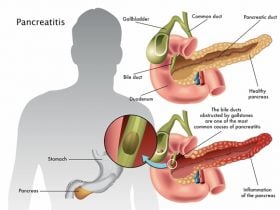Hypertension

High blood pressure (hypertension) is a common condition [1] in which the force of the blood flowing through the arteries become excessive and causes a myriad of health problems like heart diseases. Narrow arteries will increase resistance, so the narrower the arteries are, the higher your BP will be. HBP, or hypertension, occurs when the pressure increases to unhealthy levels. The BP measurement takes into account how much is passing through the arteries and the amount of resistance the blood meets while the heart is pumping.
Blood pressure is determined [2], both by the amount of blood the heart pumps and the amount of resistance to blood flow in the arteries. The more the heart pumps and the narrower the arteries, the higher the blood pressure. A BP reading is measured in millimeters of mercury (mm Hg). A normal blood pressure level is less than 120/80 mmHg. If BP is too high for too long, it can cause serious damage to the arteries. This damage can result in a range of complications [3], some of which can be life-threatening. They include heart failure, vision loss, stroke, kidney disease, and other health problems. Here are some symptoms [4] of HBP:













